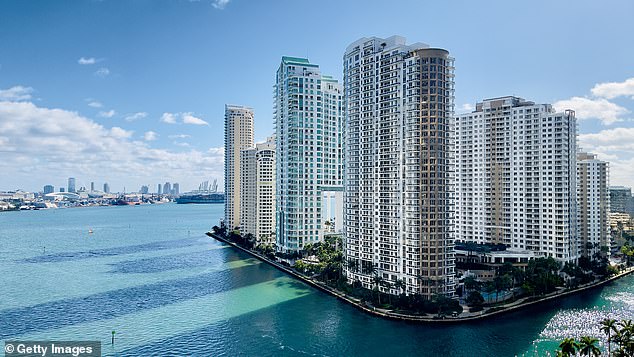Miami Housing Market Faces Unprecedented Challenges Amid Rising Cancellations and Economic Uncertainty
The Miami housing market stands at a critical juncture, grappling with a surge in homebuyer contract cancellations, growing inventory, and declining sales. Industry experts warn this vibrant region in the Sunshine State could be on the brink of a market downturn, fueled by economic anxieties linked to tariffs and recession fears.
Sharp Increase in Home Sale Cancellations Signals Market Stress
In recent months, Miami has witnessed a startling jump in pending home sales that ultimately fall through. According to Redfin, 17.9% of pending home sales in Miami were canceled in March 2025, positioning the city with the 20th-highest cancellation rate among America’s largest metropolitan areas.
Local realtor Jeff Lichtenstein, CEO of Echo Fine Properties, highlights the volatility:
“April pending sales are way down and it will be even worse next month. This really started about two weeks ago with all the jitters and up and down Wall Street every day. Uncertainty is an issue.”
The fluctuating stock market is exacerbating buyer hesitancy, making it difficult for sellers to maintain deal momentum.
Market Dynamics: Inventory Surges and Price Pressures
Overflowing Listings and Stagnant Sales
The Miami housing inventory has expanded dramatically, with nearly 51,000 homes listed across Miami-Dade, Broward, and Palm Beach counties – a record high for the region. During the pandemic, Miami experienced a real estate boom driven by remote work flexibility and favorable living conditions. However, this boom is now unwinding. Realtor.com notes a 50% increase in listings from March 2024 to March 2025, far exceeding typical growth rates.
Price Corrections and Longer Time on Market
Homes are lingering on the market longer as sellers struggle with pricing strategies that no longer align with buyer demand. The median home price in Miami currently rests around $650,000. Despite this, many properties remain overpriced, discouraging potential buyers.
Real estate analyst Nick Gerli of Reventure App succinctly observes:
“Sales are down 50% from pandemic peak and 30% below the long-term average for March. The collapse in demand in Miami’s housing market is breathtaking.”
Challenges Driving Buyer Walkouts: Inspections, Closings, and Mortgage Delays
Several factors contribute to buyers abandoning contracts, including:
- Extended inspection periods: Lengthy evaluations often reveal issues that lead to second thoughts.
- Prolonged closing timelines: Delays can cause deals to fall apart.
- Lengthy mortgage approval processes: Traditional approvals taking over a month add uncertainty.
- Rising insurance and HOA fees: Increased costs in these areas are dampening buyer enthusiasm.
Lichtenstein advises sellers to adapt quickly:
“Pre-inspections are a must to avoid ugly surprises that cause cancellations. Inspections should be done within 5-7 days, closings within 30 days, and mortgage approvals within 15 days. Also, having a hefty down payment helps stabilize deals.”
He emphasizes the importance of swift decision-making:
“Sellers need to act within 24 hours because buyers are bailing the longer they have to think. A flighty buyer could easily wait until next year.”
Condo Market Woes Compound Miami’s Housing Headwinds
Besides single-family homes, Miami’s condominium market faces significant challenges. Older condos, particularly, have been burdened with:
- Higher assessments following mandatory state inspections.
- Repair costs requiring thorough renovations.
- Substantial reserves to mitigate future issues.
- Rising insurance premiums due to climate risks and natural disasters.
These factors amplify buyer concerns, contributing further to a softening market.
Economic Impacts: Tariffs, Recession Worries, and Natural Disasters
The ripple effects of President Donald Trump’s tariffs are creating unease in the market. Elevated import costs can stall economic growth, clearly impacting consumer confidence in housing investments.
Additionally, Miami residents face the ongoing threat of natural disasters such as hurricanes, which increase insurance premiums and drive up costs, making the area less attractive for potential buyers.
What’s Next for Miami’s Real Estate Market?
Potential Price Corrections
To remain competitive and attract buyers in this increasingly challenging environment, Miami’s housing market may need to undergo significant price adjustments in the coming months.
Lichtenstein notes:
“The Florida markets now require a price correction. However, some buyers are still eager to invest in real estate, so tariffs remain the wildcard.”
Tips for Home Sellers in Miami
- Be flexible on price and terms
- Conduct pre-inspections
- Accelerate the closing process
- Require substantial down payments
- React promptly to buyer inquiries
Conclusion: Navigating Miami’s Housing Market in Uncertain Times
Miami’s real estate market faces a precarious future marked by elevated cancellation rates, soaring inventory, and economic headwinds. With the median home price around $650,000 and over 50,000 properties available, sellers must be agile and strategic to secure and maintain deals.
Buyers, meanwhile, are increasingly cautious amid inflationary pressures, slow mortgage approvals, rising insurance costs, and natural disaster risks.
For comprehensive insights into national housing trends, visit the National Association of Realtors and stay informed on market developments affecting your home buying or selling decisions.
Relevant Resources
- Miami Real Estate Market Data – Realtor.com
- Understanding the Impact of Tariffs on Housing – Investopedia
- Mortgage Approval Process Explained – Zillow
- Homeowners Insurance in Florida – Insurance Information Institute
The Miami housing market is dynamic but currently challenged—buyers and sellers alike need to stay informed, act decisively, and adapt swiftly to succeed in this evolving landscape.


